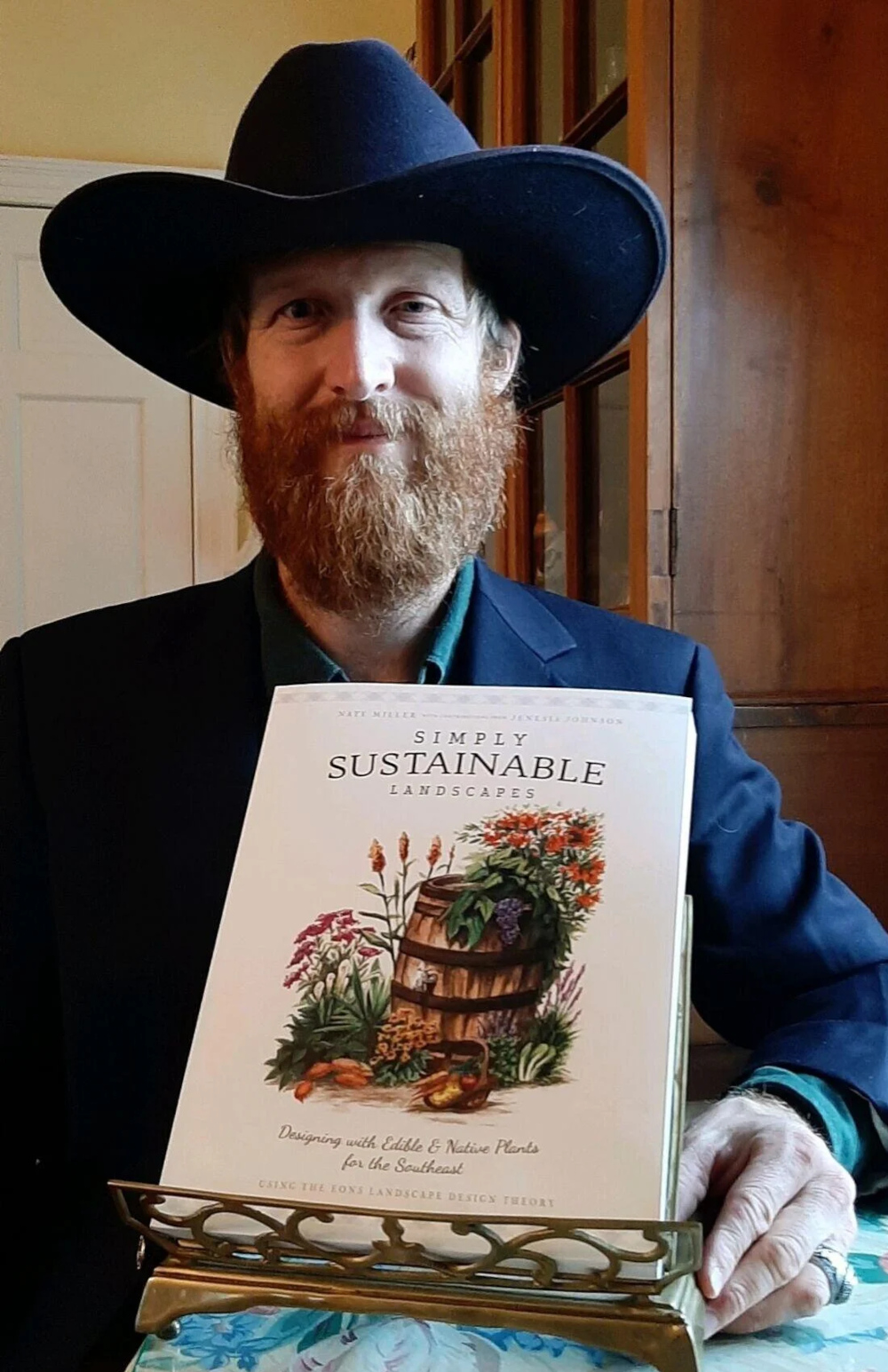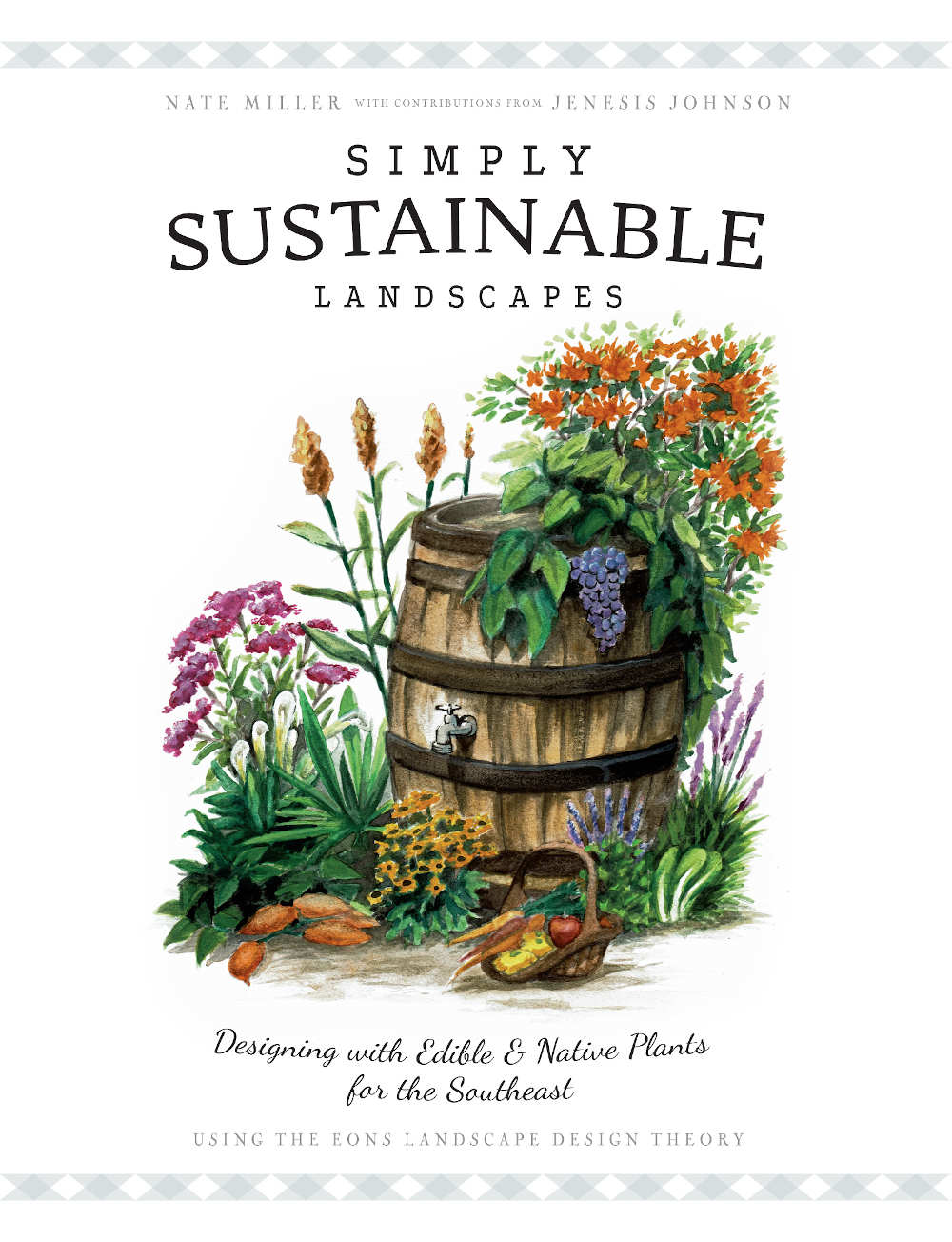
Interview: Daily News Record
Landscape Designer Gives Tips For Sustainable Garden
February 24, 2024
Harleigh Cupp
From the time he was a child, Nate Miller has been inspired by the natural world around him.
As he continued to explore and entertain different interests in art and environmental science, he eventually settled into a passion for landscape design — all through the scope of sustainability. In just the last few years, Miller has self-published a book, became a professor, and found a job as a landscape designer while continuing to share his theory for a different way of design with anyone with an ear to listen.
“I was different and unique,” Miller remarked, “but I stuck to my grounds [and pursued my interests].”
When Miller began to explain where his interest in landscaping comes from and how he came to be an author on sustainability, he reflected all the way back to the beginning of his local roots.
Miller was born in Harrisonburg and raised in Rockingham County. His father ran a law practice in the friendly city while serving as a local politician campaigning for lieutenant governor. Miller recalled, however, that both his father and mother took an interest in gardening and there were always vegetables growing in the yard of the historic house they moved to in Bridgewater when Miller was elementary-school aged.
The first few years of his life, however, were spent on Massanutten mountain before it was regarded as a resort.
“Every day was an adventure in nature,” Miller remembered.
Miller graduated from Eastern Mennonite High School in 2002 and didn’t move too far from home when he worked to obtain an art major from Bridgewater College.
Even though art was what Miller felt most passionate about, his science professors encouraged him not to discount the field — despite a learning disability that made studying difficult. Miller took their advice to heart and enrolled in “everything except the hard chemistry,” including the school’s developing environmental science program.
About that time, Miller took the opportunity to participate in a national contest for 9/11 memorial designs. A year later, Miller did a similar project for the Flight 93 national memorial. Miller worked closely with a designer who was a friend of his father’s, and even though his designs weren’t chosen for the final installation, they’ve become part of museum archives.
“That [contest] really set me on a path to landscape design,” Miller observed. “I was thinking like a landscape designer without even realizing it.”
In 2008, Miller decided to continue his education and was accepted into a graduate program at Clemson University where he earned a masters in landscape architecture and design. Miller recalled that the program was both challenging to him and that he himself challenged the program — which was only four or five years old when he joined.
While most of the students had their sights set on traditional elements of landscaping and urban development, Miller took extra classes in horticulture and questioned why landscape design couldn’t also include elements of habitat restoration, edible plantings and other similar themes.
“I was taking these classes during the recession, and I thought the future of landscaping was headed toward biodiversity and permaculture,” Miller said.
For the most part, Miller’s predication was right.
Ideas about ecological landscaping and biological farming that were considered “fringe” for the mid-2000s is being embraced by the younger generation as Miller believes historic events like the 2008 economic recession or COVID-19 pandemic cause more and more people to turn toward sustainable living — and landscaping.
 In the midst of studying at Clemson, Miller and a classmate by the name of [Jenesis] Johnson co-authored a book together that they felt addressed holes in the school’s curriculum.
In the midst of studying at Clemson, Miller and a classmate by the name of [Jenesis] Johnson co-authored a book together that they felt addressed holes in the school’s curriculum.
Miller explained that he was in need of some extra credit anyways, so he and his classmate took an elective course with a horticulture professor and drafted a 180-page document filled with their knowledge and experience.
“It became bigger than what we expected,” Miller recalled, “but the class ended and all we had was a manuscript.”
Upon graduating, the two continued to work together until a final draft was ready to be edited. In 2020, the book — titled Simply Sustainable Landscapes — was self-published by Miller and has sold roughly 2,000 copies so far. The main theme of the educational-style literature teaches the practice of wholistic landscape design using Miller’s EON theory. E represents edible plants, O represents ornamental and heirloom plants which are non-invasive and N stands for native plants.
“One morning, it just came to me,” Miller said. “And it’s a phrase that people pick up on and remember.”
In addition to marketing his book and traveling to small farm-based trade shows throughout the region, Miller is a professor at Piedmont Virginia Community College for both a horticulture and cannabis program, works a day-job as a landscape designer for Messer Landscape, Inc. as well as running commissions for his own landscape designs on the side.
According to Miller, February and March are prime times for garden and yard planning. His top tips for successful and sustainable landscaping include always drafting a design first and focusing on native plants that have seasonal interest.
More Articles and Interviews
Article: The Journal
Edition — March 6, 2024 Edition
Article: Bridgewater College Eagle Eye Magazine Alumni
Spotlight of the Month — March 2024
Interview: PBS Virginia Public Media
Virginia Home Grown: Create a Landscape that is both Functional and Beautiful with Keith Nevison, Preston Montague, and Karen Lee — April 29, 2022
Interview: I Love Cville Network
Special Guest Nate Miller on his book Simply Sustainable as well as his Horticulture and Cannabis Classes at JMU and PVCC with Jerry Miller — September 2021
Directory: Clemson World
University Magazine — Summer 2021 Alumni Authors

 Jane Hannah Ruppe, 2021
Jane Hannah Ruppe, 2021